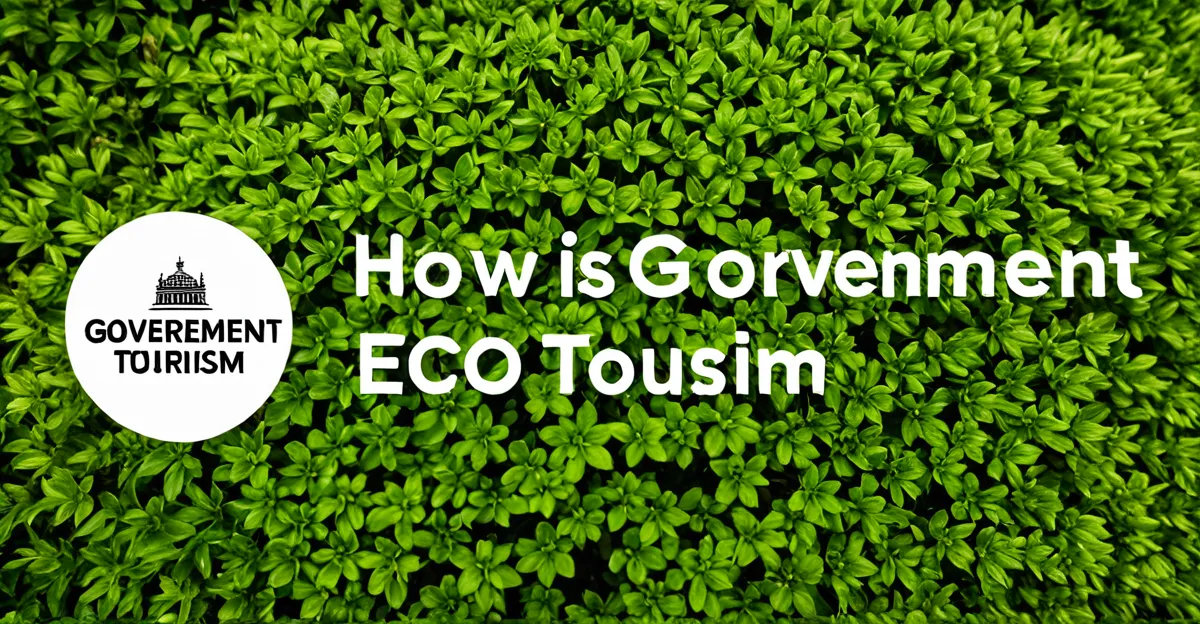Government Policy Frameworks for Sustainable Tourism
The UK sustainable tourism policies form a critical backbone for promoting responsible travel that minimizes environmental impact. Central to these efforts are government strategies developed by departments like the Department for Digital, Culture, Media and Sport (DCMS) and the Department for Environment, Food and Rural Affairs (DEFRA). These official frameworks emphasize reducing carbon footprints, conserving biodiversity, and supporting local communities.
DCMS outlines strategic objectives focused on boosting tourism while ensuring sustainability through innovation and collaboration with industry stakeholders. DEFRA complements this with environmental policies addressing climate change and habitat protection, ensuring tourism growth aligns with broader ecological targets.
In parallel : What Role Does Heritage Play in Modern UK Tourism?
Integration with the UK’s climate and biodiversity commitments is a hallmark of these policies. For example, initiatives encourage the adoption of renewable energy in tourism infrastructures and promote biodiversity-friendly practices. The government’s holistic approach balances economic benefits with environmental stewardship, guiding sustainable tourism towards long-term resilience. This extensive policy framework not only supports environmental goals but also enhances the visitor experience by preserving the natural and cultural assets that attract tourism in the first place.
Regulatory Measures and Standards
Understanding the framework of sustainable tourism regulations is crucial for fostering responsible travel. Existing legislation often emphasizes minimizing environmental impact, protecting local cultures, and promoting economic benefits to host communities. These laws guide tourism businesses and operators to adopt environmental standards that reduce carbon footprints, manage waste responsibly, and conserve natural resources.
Also read : What Strategies Are UK Cities Using to Attract More Tourists?
Certification programs play a vital role in encouraging compliance. These programs offer recognition to businesses meeting established responsible travel standards, which can include measures like energy efficiency, wildlife protection, and community engagement. Compliance mechanisms, such as regular audits and reporting requirements, ensure ongoing adherence to these standards.
Adopting such legislation and standards creates a reliable framework that balances tourism growth with ecological preservation. When tourism operators align with these laws, they contribute to a sustainable future, making travel both enjoyable and ethical. This approach also reassures travelers seeking truly sustainable options, enhancing the industry’s credibility and long-term success.
Government Funding and Support Initiatives
Governments worldwide recognize the importance of promoting sustainable tourism funding as a tool to encourage environmentally friendly and socially responsible travel. Many national and regional authorities have established government grants specifically designed to support sustainable tourism projects. These grants provide financial resources for initiatives that reduce carbon footprints, protect natural habitats, and enhance local cultural experiences.
Investment in green infrastructure and low-carbon travel is a key priority within these support programs. For instance, funding is often directed toward the development of eco-friendly accommodations, renewable energy use in tourist facilities, and improvements in public transportation options that reduce environmental impact. These efforts align with broader climate action goals while creating opportunities for tourists to make responsible choices.
Additionally, support programs frequently target local tourism businesses seeking to adopt sustainable practices. By offering technical assistance alongside funding, governments help small and medium enterprises innovate and thrive in an increasingly eco-conscious market. Such measures ensure a broad-based shift toward sustainability, making these funding and support initiatives vital to the future of tourism.
Public-Private Partnerships and Stakeholder Collaboration
Exploring collaborative efforts in sustainable tourism
Sustainable tourism partnerships thrive when government bodies, NGOs, and private sector players align their goals. These collaborative initiatives create robust frameworks that promote environmental stewardship while boosting local economies. For instance, joint ventures often pool resources and expertise, facilitating better infrastructure and community-focused tourism planning.
Stakeholder engagement is pivotal. When local communities, businesses, and policymakers actively participate, projects benefit from diverse perspectives and heightened commitment. This inclusive approach increases transparency and accountability, directly enhancing project outcomes.
Take, for example, a program where local authorities work with environmental NGOs and hospitality companies to reduce carbon footprints and promote eco-friendly accommodations. Such partnerships have resulted in measurable improvements in conservation efforts and visitor satisfaction.
The impact of stakeholder involvement extends beyond implementation. It fosters ongoing dialogue that adapts tourism strategies to evolving challenges, ensuring long-term sustainability. Ultimately, these sustainable tourism partnerships turn isolated efforts into cohesive actions, amplifying positive effects on destinations and communities alike.
Official Campaigns and Education Efforts
Raising awareness and engaging travelers
National sustainable tourism campaigns play a vital role in shaping how travelers interact with destinations. These campaigns focus on public awareness by highlighting the importance of preserving local culture and the environment. For example, governments and tourism boards often distribute materials and organize events that encourage responsible behavior, such as reducing waste and respecting wildlife.
Visitor education is another cornerstone of these efforts. Travelers receive accessible information through brochures, websites, and mobile apps that offer practical advice on sustainable travel practices. This empowers visitors to make mindful decisions before and during their trips. Providing sustainable travel resources ensures tourists understand the impact of their choices, from transportation to accommodation.
Furthermore, many initiatives target both businesses and consumers with tailored training and workshops. These educational programs help tourism operators adopt eco-friendly practices while informing consumers about supporting sustainable options. Together, these efforts create a foundation for lasting change, where knowledge leads to action and tourism contributes positively to communities and the planet.
Case Studies: Real-World Impact of Government Actions
Governments across the UK have launched sustainable tourism projects that showcase measurable outcomes in economic growth, environmental protection, and social benefits. One notable example involves regional programs that promote eco-friendly accommodations and local cultural experiences, boosting visitor numbers while reducing carbon footprints. These initiatives often include incentives for businesses adopting green practices, resulting in quantifiable reductions in energy consumption and waste production.
Economic impacts are evident through increased employment opportunities and higher local revenues, demonstrating how government-backed projects can stimulate community development. Socially, these programs enhance resident quality of life by preserving heritage sites and encouraging community participation in tourism planning. Environmentally, measurable outcomes include improved biodiversity and restored natural habitats due to stricter regulations and conservation efforts.
A critical lesson from UK sustainable tourism case studies underscores the importance of stakeholder collaboration and continuous monitoring. Integrating local voices ensures projects meet real needs, while ongoing evaluation helps replicate success and address challenges. These examples provide valuable insights for future sustainability initiatives in tourism, confirming that government actions can drive meaningful, long-lasting change.
Monitoring, Evaluation, and Future Directions
Assessing progress and shaping the future
Effective sustainable tourism evaluation relies on robust methods to monitor and measure policy performance. Governments typically employ a combination of quantitative data—such as visitor numbers, environmental indicators, and economic impacts—and qualitative feedback from stakeholders to assess outcomes. This dual approach ensures a comprehensive understanding of tourism’s sustainability.
Recent government reporting highlights significant trends, including improved resource management and a gradual shift toward community-based tourism models. These reports underscore successes but also pinpoint areas needing greater attention, such as reducing carbon footprints and enhancing local engagement. Such insights drive adaptive strategies in policy frameworks.
Ongoing consultations reveal emerging priorities, including integrating climate resilience into tourism planning and promoting equitable benefit-sharing. Stakeholders across sectors emphasize the importance of transparent government reporting to maintain accountability and foster trust. Moving forward, innovations in data collection and real-time monitoring promise to enhance sustainable tourism evaluation, ensuring policies remain responsive and future policy evolves effectively.







